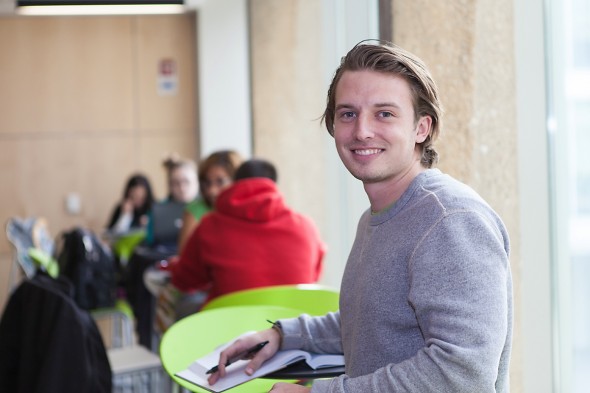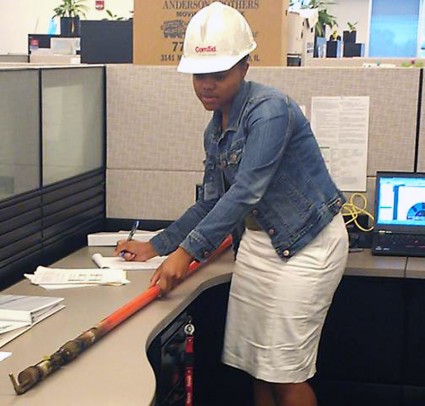Head start with engineering internships

“Having an internship really helps in terms of seeing where you want to go,” says junior Ante Kovacevic. Photo: Ron Fernandez
Ante Kovacevic thought he knew what career he wanted, but an internship put him on the right path.
Originally a civil engineering major, Kovacevic discovered that it wasn’t right for him after interning at a company that designs cell towers.
He found a better fit in mechanical engineering and has an internship lined up this summer with the GREEN Program, exploring renewable energy initiatives in Costa Rica.
“Having an internship really helps in terms of seeing where you want to go in life,” said Kovacevic, a junior.
“It made me realize that switching my major was a really good idea. Students should do internships as soon as possible.”
UIC’s newest engineering students will have that option. The College of Engineering is the first in the country to guarantee that all eligible incoming freshmen will be placed in a paid internship the summer after their first year.
“Paid internships are one way that we can give our students the experience they need to succeed and help them connect to the professional world,” said Peter Nelson, dean of the engineering college, “especially since that first internship is the hardest to find.”
The internship program will place students with a company or UIC research lab for at least eight weeks over the summer. Pay is expected to range from $10 to $15 per hour.
To be eligible for the internship program, students must meet a minimum GPA requirement, complete required coursework and participate in the Engineering Student Success Program.
“We are seeing a long-term upward enrollment trend driven by the tremendous career opportunities for our students,” Nelson said.

Senior TaTanesha Lee examines a tool used to place clamps on transmission lines during her internship at ComEd last summer.
Senior TaTanesha Lee found an internship at ComEd through networking at the UIC Diversity Career Fair in fall 2011. During her internship last summer, Lee helped solve problems such as ensuring that workers were protected from on-the-job hazards.
“I could see myself working there,” said Lee, a senior in electrical engineering.
“When they would throw around terms like ‘induced currents’ or ‘induced voltage,’ I was able to understand what they were talking about and see how we actually use the stuff I learn in my engineering courses. And I was able to apply some of the things I learned through my work at ComEd in my classes.”
She also learned to appreciate some of her least favorite subjects.
“I hated physics but working there, I could see how it was useful and was like, ‘Oh, wow, this is actually kind of cool,” Lee said.
